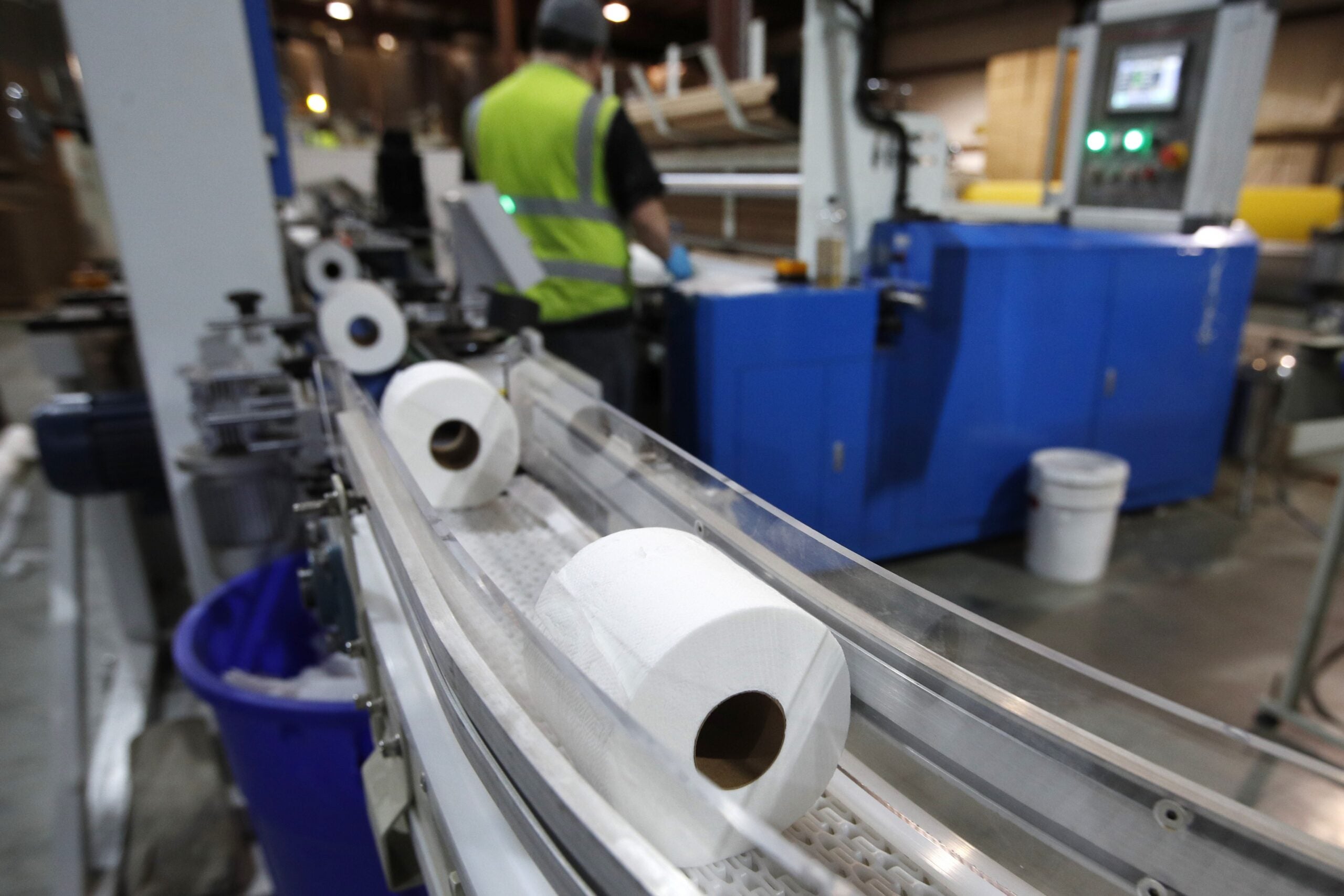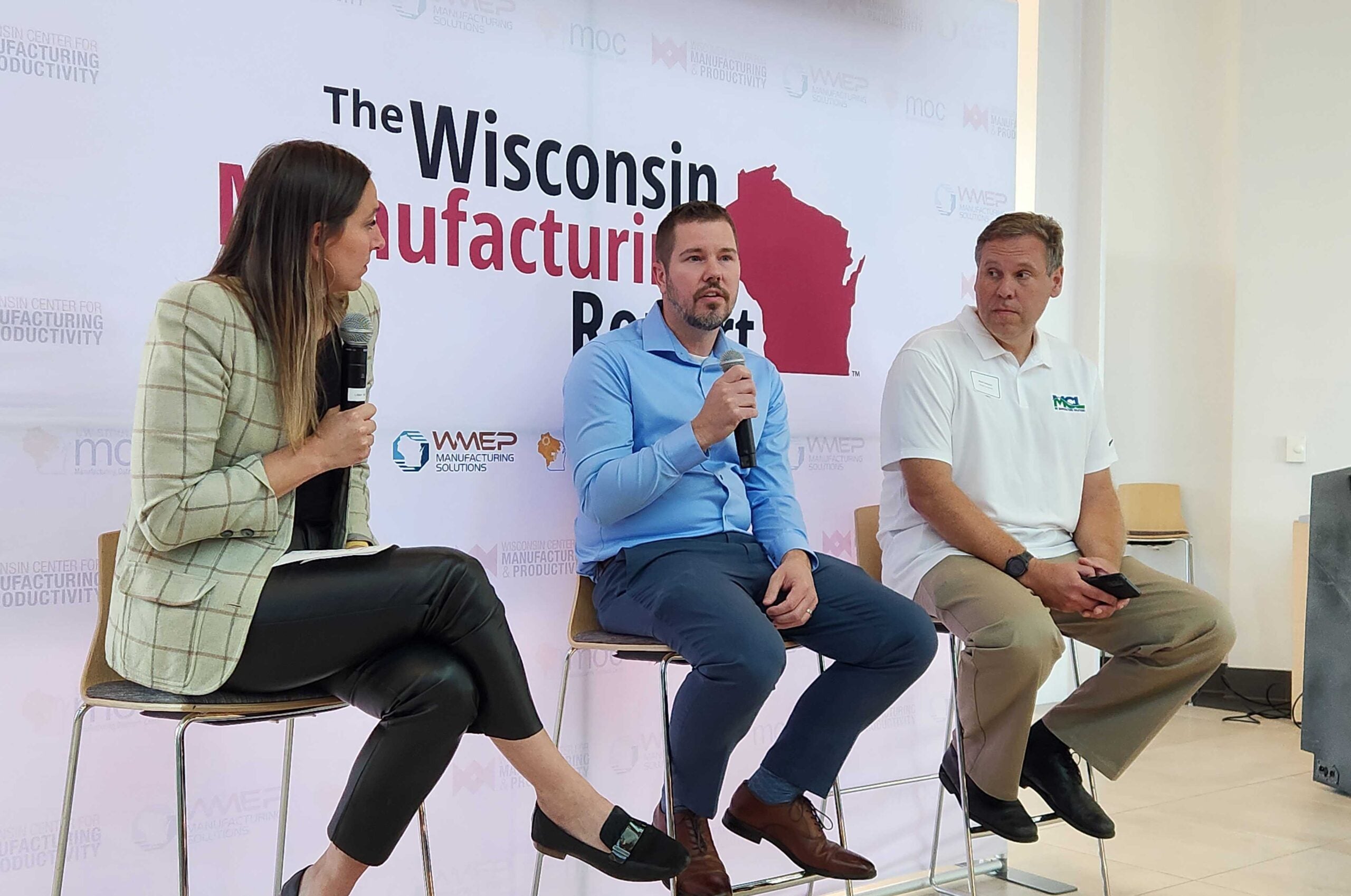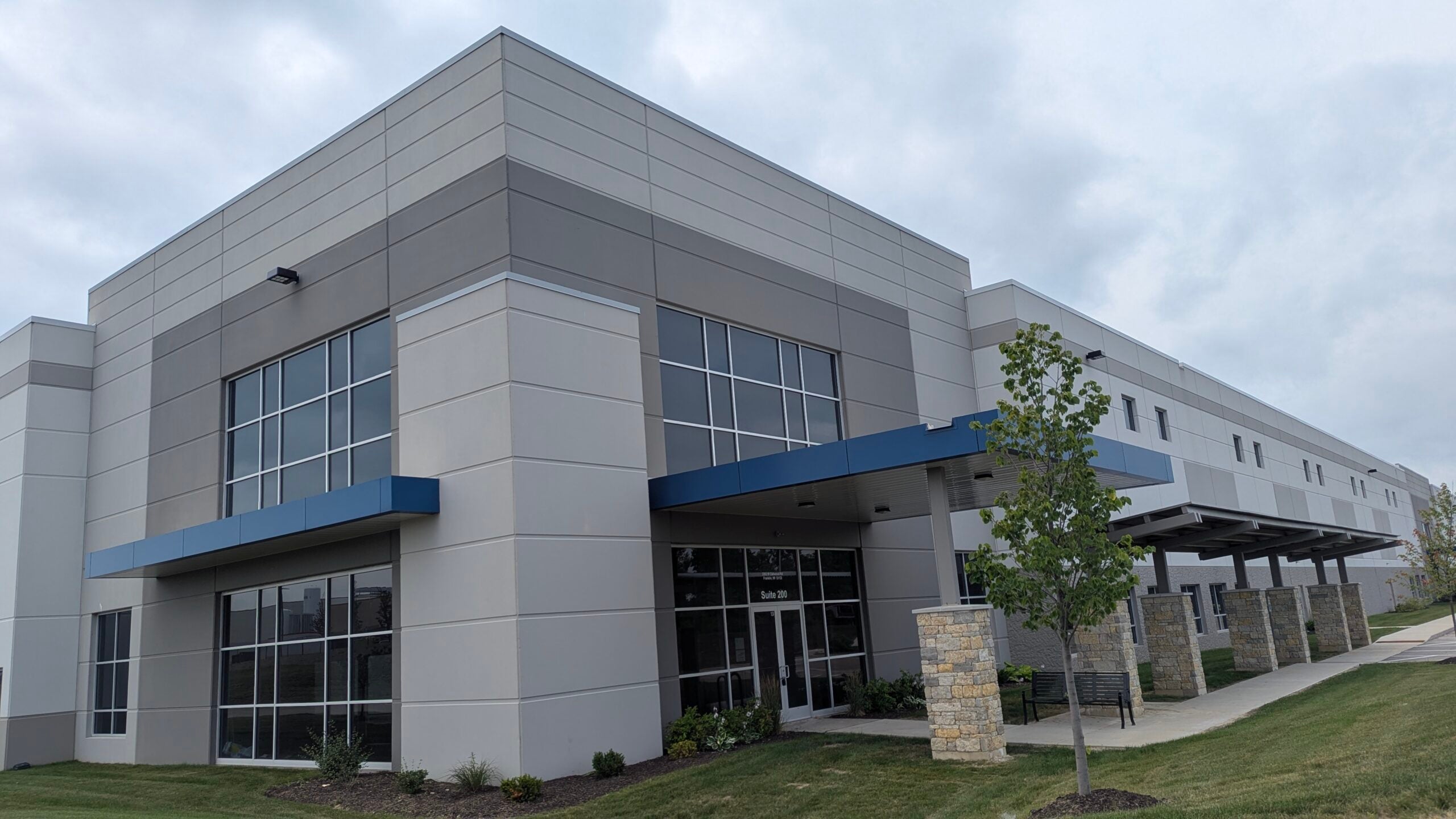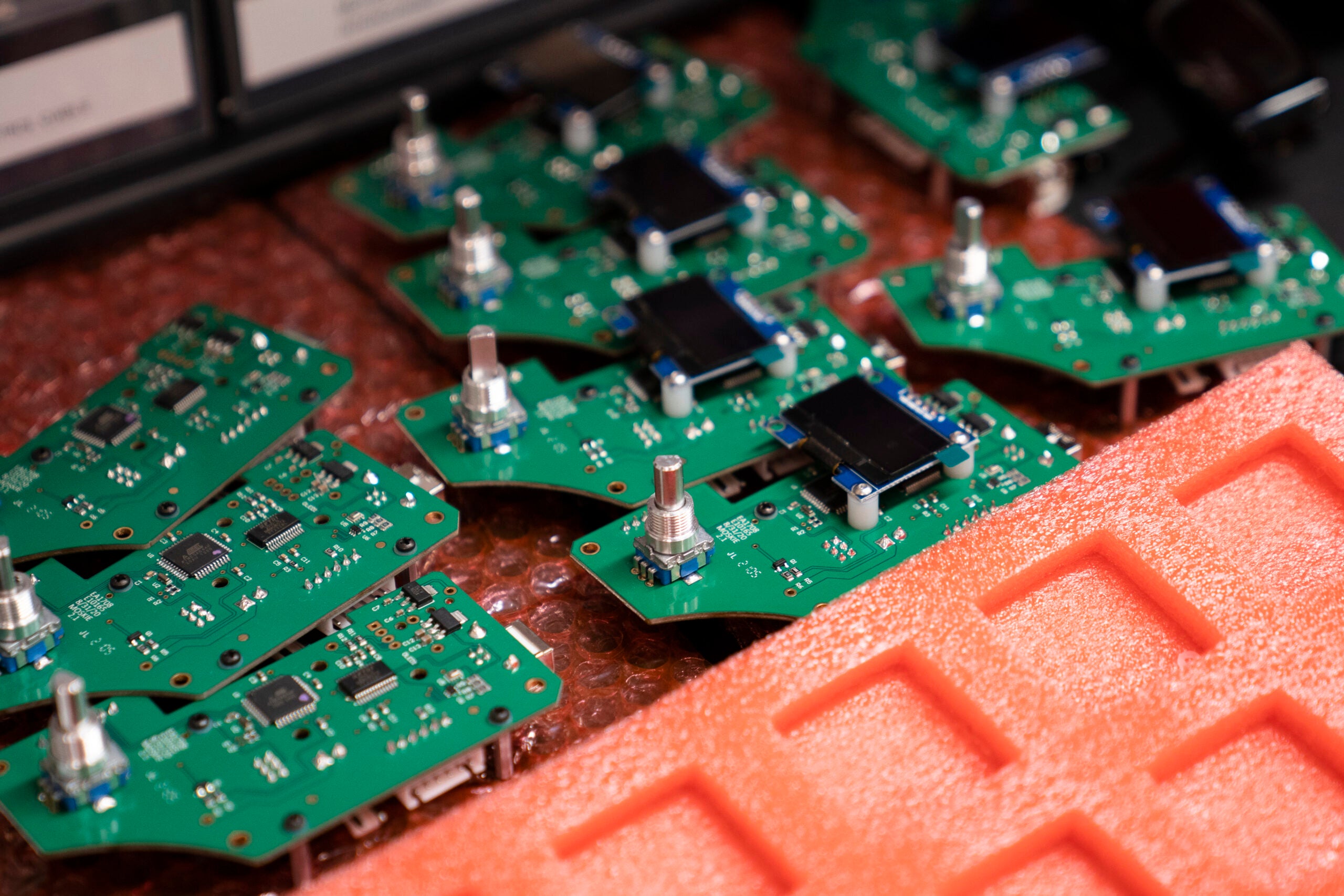Some manufacturing companies in Wisconsin say they’re ramping up production as consumers stock up in response to the new coronavirus pandemic.
But many plants are preparing for potential impacts to their workforce as the virus spreads.
Stores around the country are struggling to keep toilet paper in stock, with many instituting limits on the amount shoppers can buy.
News with a little more humanity
WPR’s “Wisconsin Today” newsletter keeps you connected to the state you love without feeling overwhelmed. No paywall. No agenda. No corporate filter.
[[{“fid”:”1189981″,”view_mode”:”embed_landscape”,”fields”:{“format”:”embed_landscape”,”alignment”:”right”,”field_image_caption[und][0][value]”:”%3Cp%3ESigns%20at%20Woodman’s%20East%20in%20Madison%20limit%20the%20amount%20of%20supplies%20customers%20are%20able%20to%20buy%20amid%20preparations%20for%20COVID-19.%20%3Cem%3EJenny%20Peek%2FWPR%3C%2Fem%3E%3C%2Fp%3E%0A”,”field_image_caption[und][0][format]”:”full_html”,”field_file_image_alt_text[und][0][value]”:”Woodman’s East sign in Madison”,”field_file_image_title_text[und][0][value]”:”Woodman’s, East, Madison, COVID-19, coronavirus, grocery store, supermarket”},”type”:”media”,”field_deltas”:{“1”:{“format”:”embed_landscape”,”alignment”:”right”,”field_image_caption[und][0][value]”:”%3Cp%3ESigns%20at%20Woodman’s%20East%20in%20Madison%20limit%20the%20amount%20of%20supplies%20customers%20are%20able%20to%20buy%20amid%20preparations%20for%20COVID-19.%20%3Cem%3EJenny%20Peek%2FWPR%3C%2Fem%3E%3C%2Fp%3E%0A”,”field_image_caption[und][0][format]”:”full_html”,”field_file_image_alt_text[und][0][value]”:”Woodman’s East sign in Madison”,”field_file_image_title_text[und][0][value]”:”Woodman’s, East, Madison, COVID-19, coronavirus, grocery store, supermarket”}},”link_text”:false,”attributes”:{“alt”:”Woodman’s East sign in Madison”,”title”:”Woodman’s, East, Madison, COVID-19, coronavirus, grocery store, supermarket”,”class”:”media-element file-embed-landscape media-wysiwyg-align-right”,”data-delta”:”1″}}]]
Many popular toilet paper brands are manufactured in northeast Wisconsin, including Charmin, Quilted Northern and Cottonelle.
Proctor and Gamble Co. is producing and shipping Charmin toilet paper at record levels, a spokesperson said. Though demand is outpacing supply, she said the company is distributing products to retailers “as fast as humanly possible.”
Clearwater Paper, which has production facilities in Neenah, is the country’s leading maker of store-brand paper products for grocery stores. The company is doing everything it can to keep its factories up and running, said Shannon Myers, Clearwater’s communications director. That includes implementing sanitation, sick leave and remote work policies.
“We produce and sell products that are absolutely essential to everyone’s daily lives, and reliable production has never been more critical than now,” she said.
The company is also working with suppliers to make sure raw materials will continue to be available, Myers said.
Wisconsin’s paper industry accounted for 30,000 jobs and $18.2 billion in economic output in 2018, according to a report from the Wisconsin Economic Development Corp. Paper production was the state’s fifth-largest industry, the report said, with paper manufacturing facilities in 41 Wisconsin counties.
Wisconsin food manufacturers are also reporting high demand from grocery stores.
Anne Smith is communications director for Lakeside Foods in Manitowoc, which produces store brand frozen and canned vegetable products. Smith said the company started increasing production more than a week ago.
“Our teams are working overtime at our packaging and labeling facilities to address the influx of orders we’ve received as well as ramped up accelerated delivery times,” Smith said.
She said demand from food service companies and restaurants has slowed after the state Department of Health Services ordered all restaurants to close and banned gatherings of 10 or more people. But Smith said some orders are still coming in as restaurants turn to carryout or delivered meals.
She said Lakeside is keeping an eye on potential disruptions to shipping operations and has restricted visitors at their facilities.
A spokesperson for Del Monte Foods, which has plants in Plover and Markesan, said they’ve also seen an increase in demand for shelf-stable products.
“We are accelerating our product deployment efforts and looking to mitigate supply chain disruptions in order to provide faster access of our products for our customers and consumers,” said the company in an email statement.
A statement from Hormel Foods Corp., which has a plant in Beloit, said their manufacturing facilities continue to operate normally. The company reported seeing strong demand for products like peanut butter, deli meats and canned foods.
Hormel also announced plans to donate $1 million in cash and products to local and national organizations addressing food insecurity related to the pandemic.
Other manufacturing facilities in the state are preparing for potential impacts to their workforce as the virus spreads.
Milwaukee-based Harley-Davidson, Inc. has made the decision to temporarily suspend production at its three manufacturing plants in the United States. The decisions comes after an employee at the plant in Menomonee Falls tested positive for COVID-19.
Kohler Co. said in a statement on Facebook that the company is taking “aggressive measures” to protect employees around the world.
“We are monitoring 24/7 and have plans in place at all of our global locations that will protect our associates and ensure continuity of business operations and services in the event that an associate is confirmed with the virus,” the company said in the statement.
George Bureau is vice president of consulting for WMEP Manufacturing Solutions, a nonprofit organization offering consulting services for small- to medium-sized manufacturing companies in Wisconsin.
Bureau said many companies he works with were not prepared for a pandemic like the new coronavirus.
“I’ve talked to a number of CEOs who’ve said, ‘You know, I’ve never been trained for almost an act of God.’ And that’s essentially what we’re seeing, you know, it’s like a giant hurricane hit the United States right now,” Bureau said.
He said most of the companies he works with are worried about how the pandemic will impact their workforce and around two-thirds have restricted visitors to their facilities, including contracted employees or maintenance workers.
Bureau said companies are also concerned about their supply chain. He said some manufacturers rely on components made in China, where some plants have been shut down for weeks.
“They’re just starting to restart as far as I know. So the concern is, is there going to be a dip where they just can’t get certain components?” Bureau said.
Wisconsin Public Radio, © Copyright 2025, Board of Regents of the University of Wisconsin System and Wisconsin Educational Communications Board.







